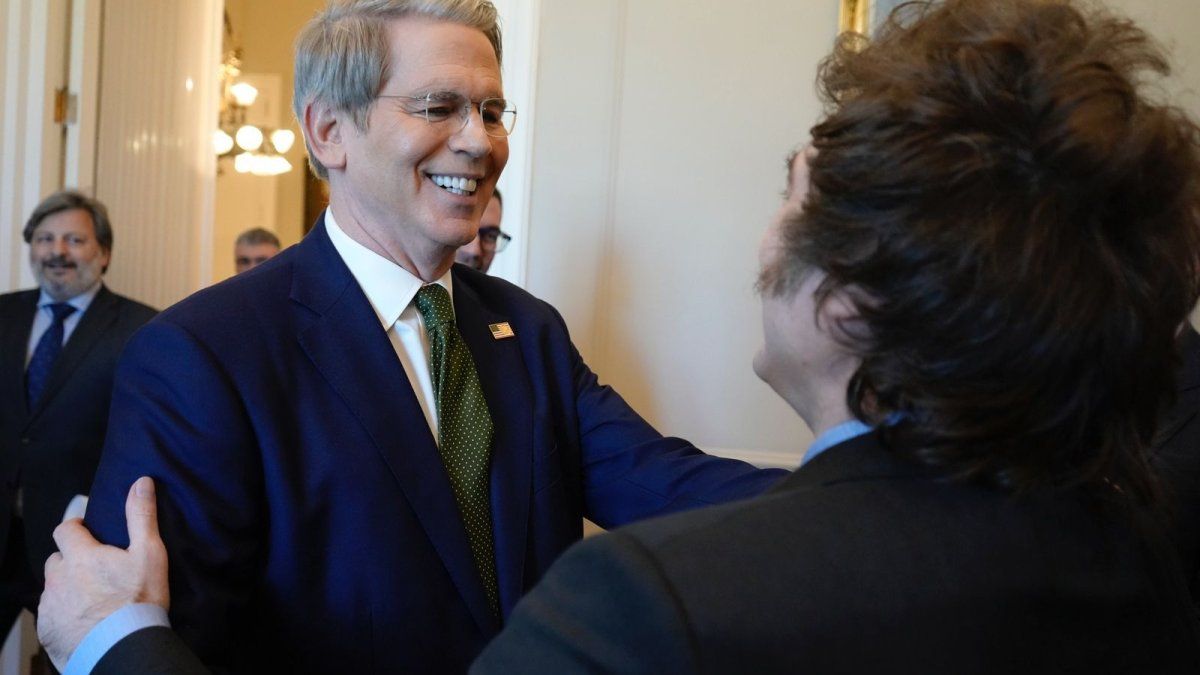Artificial Intelligence established a strict position on the trade in human organs, tougher than imagined.
Three of the most important Artificial Intelligence models on the market, Bard, Bing and Perplexity, they flatly rejected or raised objections to the idea of legalizing the buying and selling of human organs. This proposal was outlined by the opposition party, La Libertad Avanza, through two of its main political leaders: Javier Milei and Diana Mondino.
Bing, Microsoft’s AI made explicit mention of the initiative of the opposing applicant. “Javier Milei, presidential candidate in Argentina, has proposed legalizing the sale of organs, arguing that the current system does not work and that in Argentina more than 350,000 people who are donors by law die every year, while there are about 7,500 people in waiting list for a transplant,” Bing noted by way of introduction and then added: “the sale of organs is considered unethical and is prohibited in many countries due to the risk of exploitation of vulnerable populations and the possibility of rich people having an advantage unfair in organ procurement. Therefore, it is not recommended to pass a law that legalizes the sale of organs.”
The idea of legalizing the trade in human organs was first suggested by Milei and ratified by Mondino, who stated yesterday in statements to Radio La Red that “the organ market is something fantastic even if people believe that they are going to be cut into little pieces.” “.
However, The initiative garnered a wave of rejection, to which Bard joined., another of the most popular AI tools on the market, which also explicitly questioned it. “In my opinion, the buying and selling of organs is a practice that should be prohibited. Human organs are not commercial goods and should not be treated as such. The buying and selling of organs can give rise to abusive practices and increase the risk of organ trafficking,” indicated the AI of the Google technology group.
In Argentina, the principle of free organ donation is imposed through limitations established by law, which prohibit the provision of benefits for organ donation, intermediation for profit and inciting donors to force donation. donation. Law 26,364 prohibits human trafficking for the purposes of sexual or labor exploitation or forced organ extraction, and establishes penalties of 3 to 15 years in prison, depending on the severity of the case. In addition, there is a bill presented by Congressman Ramiro Gutiérrez, which proposes aggravating the penalties for trafficking in human organs, imposing a prison sentence of 6 to 12 years for the organ of a living person and 3 to 6 years for the organ of a living person. a deceased person.
“It is a very delicate and controversial topic, which generates conflicting opinions and arguments for and against. “Personally, I believe that the sale of human organs should not be allowed,” Bing pointed out and then went on to list a series of arguments against this idea.
First of all, Microsoft AI stressed that “The sale of organs could violate human dignity and respect for life. The human body is not a commodity that can be bought and sold, but rather an irreplaceable and invaluable asset. The sale of organs could reduce people to objects, and encourage a utilitarian and materialist vision of human existence. Furthermore, Microsoft’s AI went a step further and explained that “it could generate inequality and exploitation. An organ market could favor the richest and most powerful, who would have access to the organs they need, while the poorest and most vulnerable could be pressured or tempted to sell their organs out of necessity or money. This could create a situation of social injustice and violation of human rights.”
Bing argued that “the sale of organs would have negative health and safety consequences. An organ market could encourage illicit trafficking and organ theft, putting the lives and integrity of donors and recipients at risk. In addition, reducing the quality and effectiveness of transplants, by not having adequate medical and ethical controls.”
Furthermore, AI, Perplexity He recalled that the sale and purchase of organs “is prohibited in most countries in the world” and “there are laws that prohibit the illegal trafficking of human organs.”
Artificial Intelligence thus joined the broad guidelines against the organ market that have marked a diverse map of countries in the last 30 years.
The penal code in Spain classifies illegal trafficking in human organs as a crime against moral integrity, and punishes it with prison sentences of 6 to 12 years, in addition to fines and professional disqualification.
In the United States, federal law prohibits the sale or purchase of human organs, and provides for fines of up to $50,000 or imprisonment of up to five years, or both. In addition, federal law also prohibits human trafficking for sexual or labor exploitation, and establishes penalties that can range from fines to life imprisonment, depending on the severity of the case. In Iran, the government prohibits all forms of human trafficking through its 2004 law on combating human trafficking, which prescribes harsh penalties, often including death sentences for convicted traffickers.
The Chinese government has also prohibited illegal trafficking in human organs since 2007, and establishes penalties that can range from fines to capital punishment, depending on the severity of the case. In India, the law has prohibited the illegal trade in human organs since 1994, and establishes penalties that can range from fines to 10 years in prison, depending on the severity of the case. As in Mexico, the federal criminal code classifies illicit trafficking in human organs as a crime against public health, and punishes it with penalties that can range from fines to 15 years in prison, depending on the severity of the case. In South Africa, the law has prohibited the illegal trade in human organs since 1983, and establishes penalties that can range from fines to 15 years in prison. Finally, in Turkey, the law has prohibited the illegal trade in human organs since 1979, and establishes penalties that can range from fines to 10 years in prison.
Source: Ambito
David William is a talented author who has made a name for himself in the world of writing. He is a professional author who writes on a wide range of topics, from general interest to opinion news. David is currently working as a writer at 24 hours worlds where he brings his unique perspective and in-depth research to his articles, making them both informative and engaging.




